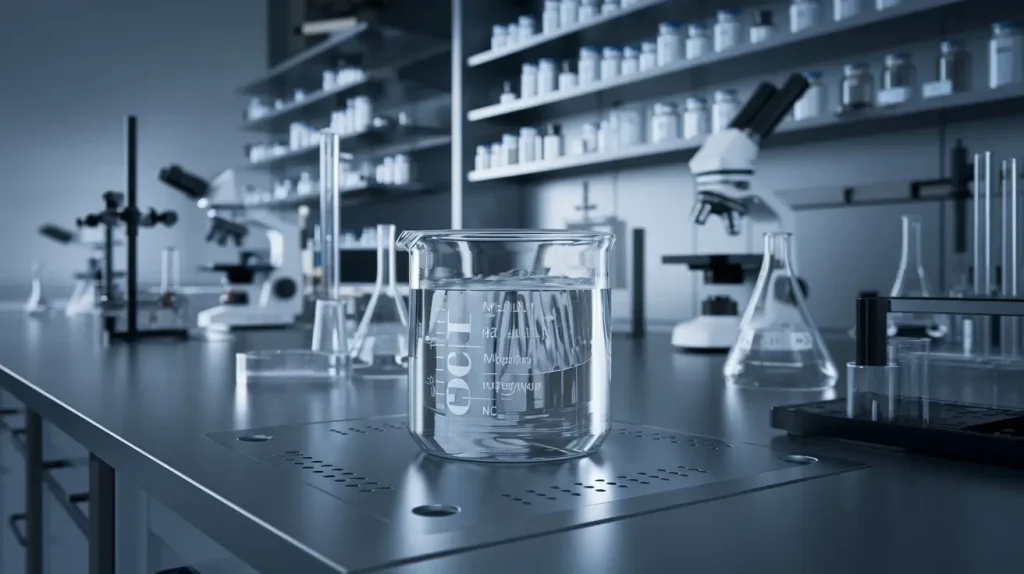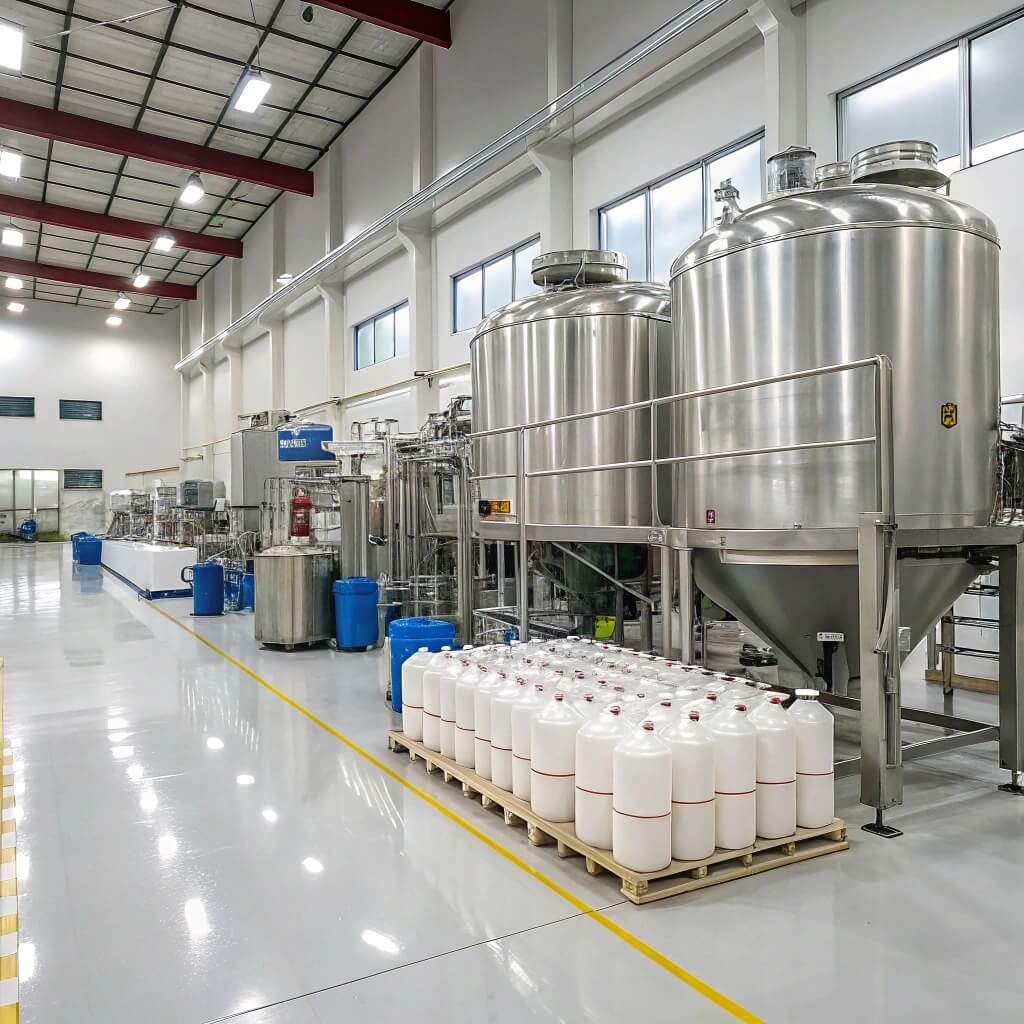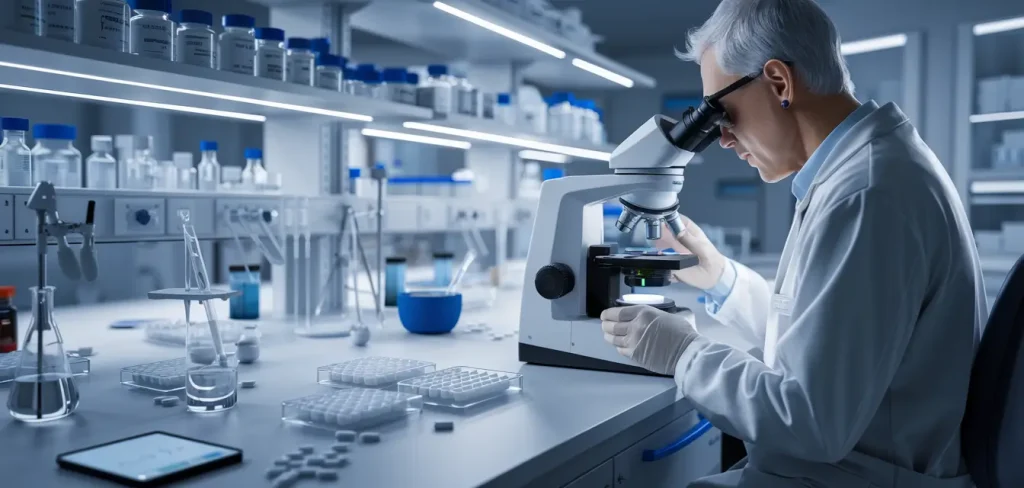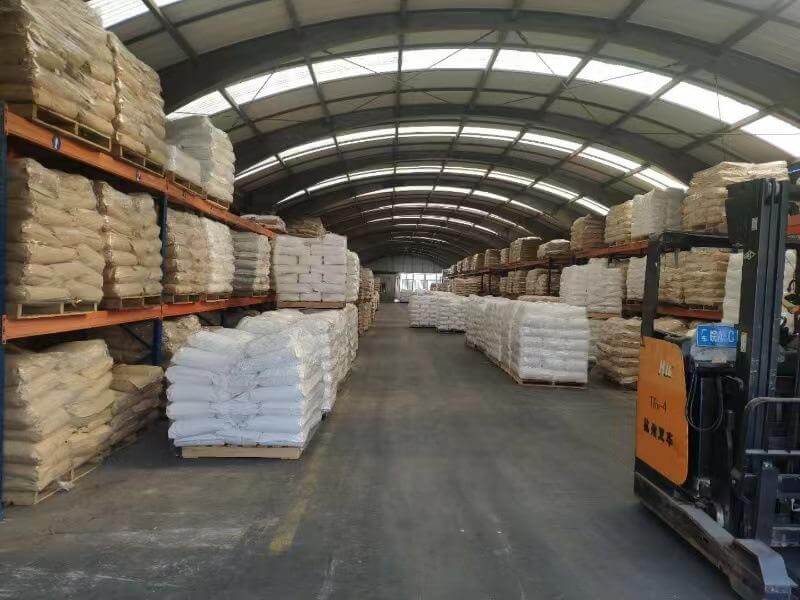Have you ever wondered how Hydroxypropyl Methylcellulose (HPMC) behaves when mixed with different solvents? It's an important consideration for many industries, from pharmaceuticals to construction.
HPMC solubility depends on multiple factors, including the temperature, solvent type, and the specific formulation used. Understanding how HPMC interacts with water and organic solvents helps in formulating effective products.
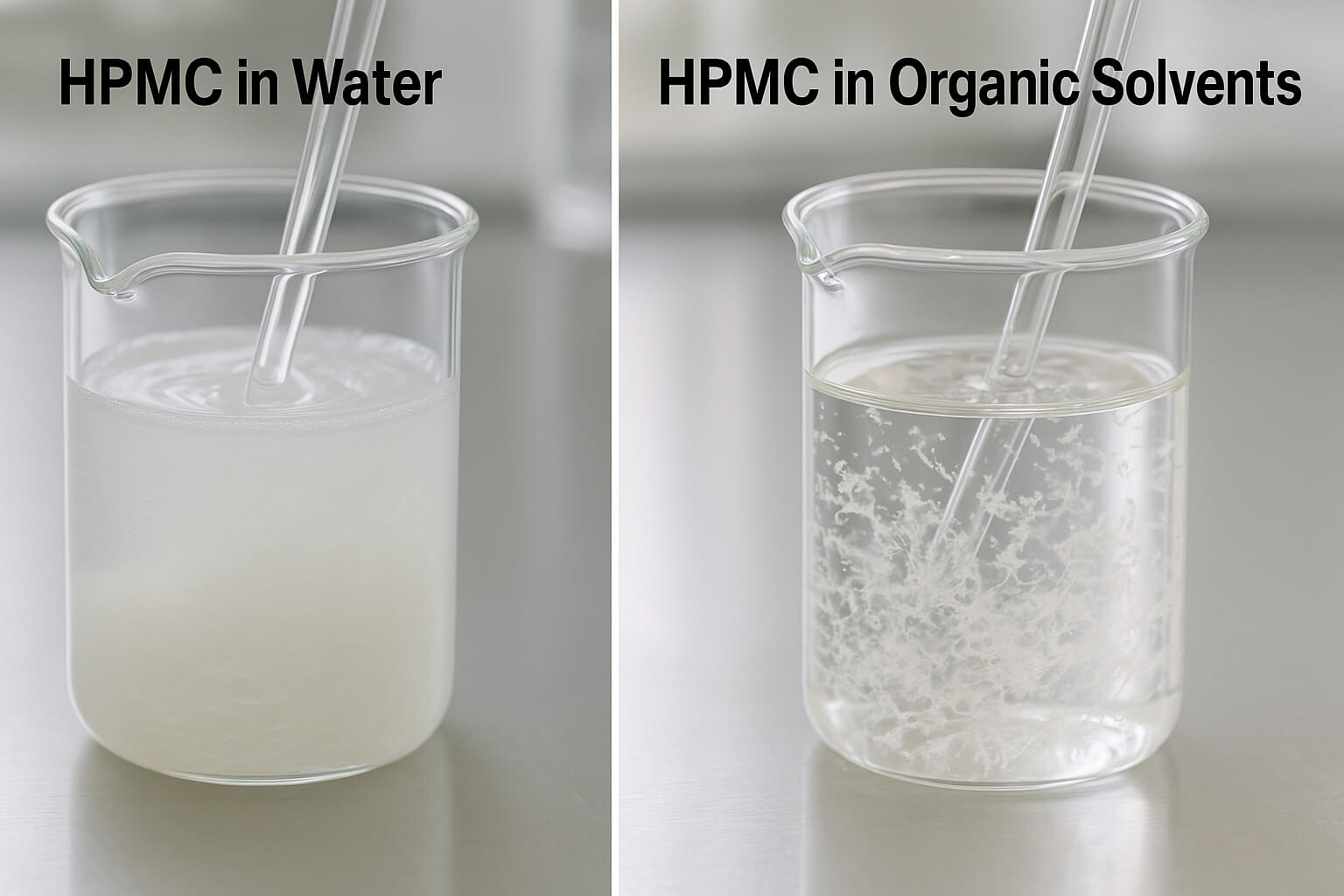
This image illustrates the solubility characteristics of HPMC in water and organic solvents under varying conditions.
The solubility of HPMC can influence the final product's quality, whether it's a pharmaceutical binder, a film-forming agent in coatings, or a thickener in construction materials. This article dives deep into how HPMC interacts with different solvents and provides insights for making informed choices in your formulations.
What affects the solubility of HPMC in different formulations?
The solubility of HPMC can vary significantly depending on the formulation. Different conditions like solvent concentration, temperature, and pH levels affect how well HPMC dissolves.
HPMC's ability to dissolve in water and other solvents can vary by the degree of substitution (DS)[^1] and molecular weight. These two factors play a crucial role in determining whether HPMC forms a gel or remains in a dissolved state in various formulations.
[^1]: Understanding the degree of substitution (DS) is essential for optimizing HPMC's solubility in formulations. Explore this link for detailed insights.
HPMC's solubility behavior is particularly notable in water. Under normal conditions, it dissolves well in cold water, though it requires time for full hydration. When mixed with hot water, it forms a gel, which is a critical property used in formulations like tile adhesives, cleaning products, and pharmaceuticals. However, the solubility of HPMC can also be influenced by its molecular weight. A higher molecular weight can lead to slower dissolution, while a lower molecular weight may allow faster solubility.
Here’s a quick breakdown of factors that affect solubility:
| Factor | Effect on Solubility |
|---|---|
| Temperature | Hot water promotes gelation, cold water aids dissolution |
| Solvent Concentration | High concentrations reduce solubility, forming a viscous solution |
| pH Level | Solubility varies from pH 3-11, with pH 7-9 being optimal |
| Molecular Weight | Higher molecular weight decreases solubility, creating thicker gels |
The balance of these factors must be carefully considered to achieve the desired viscosity, gel strength, or ease of dissolution, depending on the application.
Is HPMC water-soluble at all temperatures and pH levels?
When working with HPMC, temperature and pH levels significantly affect its solubility. At certain temperatures, HPMC can dissolve in water, but at others, it forms a gel.
Under normal circumstances, HPMC is soluble in water across a broad range of temperatures. However, at higher temperatures, it undergoes thermal gelation, a process where the solution turns into a gel rather than staying dissolved. This is an essential property used in applications like tile adhesive and pharmaceuticals.
The pH of the solution also plays a crucial role. HPMC remains highly soluble in water when the pH is between 6 and 8. However, extreme pH levels (both acidic and alkaline) can affect the dissolution rate, leading to slower or incomplete hydration. For instance, at a pH below 3 or above 11, the polymer's structure may become unstable, making it less soluble.
| Temperature Range | Solubility Behavior |
|---|---|
| Cold (below 10°C) | Slow dissolution |
| Warm (25-50°C) | Fast dissolution |
| Hot (above 50°C) | Gel formation |
Understanding the effect of temperature and pH is vital for choosing the right formulation for your needs. Whether you're working with a gel for construction or a binder in pharmaceuticals, this knowledge helps in optimizing product performance.
Can HPMC dissolve in alcohols like ethanol or isopropyl alcohol?
HPMC’s solubility extends beyond water, and it does indeed dissolve in some alcohols, such as ethanol and isopropyl alcohol. However, the solubility is less pronounced compared to water.
Alcohols like ethanol and isopropyl alcohol can dissolve HPMC but only under specific conditions, such as a higher concentration of alcohol or the presence of co-solvents. In pure ethanol, HPMC will dissolve, but at a slower rate compared to water. This makes it useful in some specialized formulations, such as hand sanitizers, where alcohol is the primary solvent.
HPMC's solubility in alcohols like ethanol and isopropyl alcohol is generally limited by the alcohol's concentration. In lower concentrations, HPMC may not dissolve fully, leading to a thicker or more gel-like consistency. However, in higher concentrations, HPMC can dissolve to form a more uniform, viscous solution, which is useful in some cosmetic and pharmaceutical applications.
| Solvent | Solubility of HPMC |
|---|---|
| Ethanol | Moderate, requires higher concentration |
| Isopropyl Alcohol | Moderate, needs higher alcohol content |
| Water | Excellent, ideal solubility for most applications |
For formulations that require the use of alcohol-based solvents, knowing how HPMC behaves in these solvents helps ensure a smoother, more reliable product.
Why does HPMC behave differently in mixed solvents?
HPMC can exhibit varied solubility when combined with different solvents, such as alcohol and water. The reason for this is the interactions between the solvents and the polymer’s structure. In a mixed solvent system, HPMC behaves differently compared to its behavior in pure solvents.
When HPMC is dissolved in a mixture of water and organic solvents, the solubility might increase or decrease depending on the ratio of the solvents. Water tends to hydrate the polymer, while organic solvents may hinder hydration or even cause the polymer to aggregate, reducing solubility.
In mixed solvent systems, the solubility behavior is dependent on the solvent's polarity and hydrogen bonding capabilities. Solvents like methanol or ethanol, which have polar characteristics, can enhance HPMC’s solubility in specific conditions. However, non-polar solvents like acetone may cause HPMC to precipitate.
| Mixed Solvent System | Effect on Solubility |
|---|---|
| Water + Ethanol | Enhanced solubility |
| Water + Methanol | High solubility |
| Water + Acetone | Reduced solubility |
The solubility of HPMC in mixed solvents is crucial for designing formulations that require both water-based and alcohol-based properties. Understanding how HPMC behaves in these systems can improve product consistency and performance.
How to choose the right HPMC type based on solubility?
When selecting the right type of HPMC for your formulation, it's important to consider its solubility properties. Different grades of HPMC are designed for specific applications, and each has unique solubility characteristics.
For example, a lower molecular weight HPMC may dissolve faster and be ideal for applications where quick dissolution is required, such as in cleaning products. On the other hand, a higher molecular weight HPMC may be better suited for products that require gel formation, such as in adhesives and paints.
Choosing the right grade involves understanding the desired final product's requirements. A more viscous solution might require a higher molecular weight, whereas a fast-dissolving solution might need a lower molecular weight.
| HPMC Grade | Suitable Applications |
|---|---|
| Low Molecular Weight | Cleaning products, detergents |
| High Molecular Weight | Mortar, tile adhesive, paints |
In addition to molecular weight, factors like the degree of substitution and the solvent environment should be taken into account. The right combination of these factors ensures that HPMC performs optimally in your product.
FAQ
Is HPMC soluble in water?
Yes, HPMC is highly soluble in water, especially at moderate temperatures. It dissolves easily to form a gel or viscous solution depending on the temperature and pH of the water.
What organic solvents are soluble in water?
Organic solvents like ethanol and isopropyl alcohol can dissolve in water, but the solubility of substances like HPMC may vary depending on the concentration and the specific solvent used.
How to dissolve HPMC?
To dissolve HPMC, simply mix it with water and allow it to hydrate. Heating the mixture can help speed up the dissolution, especially in high concentrations.
Does HPMC dissolve in ethanol?
Yes, HPMC can dissolve in ethanol, but the solubility is slower compared to water. Higher concentrations of ethanol are required for effective dissolution.
Conclusion
Understanding how HPMC behaves in different solvents, like water and alcohols, is essential for choosing the right formulation for your products.

